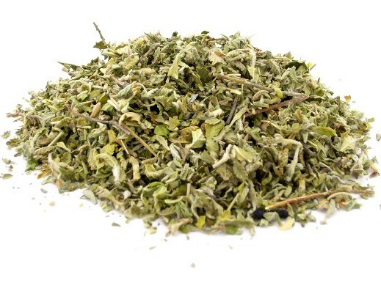Description
Botanical: Turnera aphrodisiaca; Turnera diffusa
Damiana is an ancient tonic that helps to lift the spirits, perk up lost vitality and energy and encourage an overall feeling of well-being. It also has a reputation as a libido stimulant and rejuvenator and has been used to support sexual impotence, lack of sex drive and infertility in both males and females. Women have also found it helpful when looking for relief of the discomforts of painful menstruation and menopausal problems.
Country of Origin: Mexico
Beneficial Uses:
Damiana has been used as a tonic for thousands of years for overall improved body function. It is said to boost energy levels and rejuvenate the entire central nervous system, helping to manage lethargy, nervous exhaustion, anxiety and general debility during convalescence. The herb may be able to assist with temporary symptoms of depression, because it contains natural monoamine oxide (MAO) inhibitors, although there is no clinical research thus far to support this. Because Damiana is thought to contain compounds that affect the brain and nervous system, it has also been claimed that the herb is a mild narcotic and may produce a "high" for an hour.
As a sexual stimulant, Damiana has been used for thousands of years as a botanical aphrodisiac that may help a variety of problems. It apparently contains elements that are thought to directly stimulate the nerves, genitals, blood circulation and metabolism, and it is believed to encourage sex drive in both men and women. In males, Damiana is said to help in cases of impotence and erectile dysfunction, as well as relieve erectile failure in attempts at repeated intercourse after orgasm. It is also believed to increase sperm count.
As an aphrodisiac, women have found Damiana very helpful. It is said to encourage delivery of oxygen to the genital area and stimulate the genitals, which has been useful in cases where there is lack of desire and frigidity. It is also thought to elevate the level of pleasure during sex and manage sexual trauma.
Damiana is believed to possess phytohormonal compounds (with effects similar to those of progesterone) that may be able to balance hormones and strengthen the reproductive organs in women. It is used to relieve menopausal-related problems, especially hot flashes and reduced sex drive. The herb is also said to alleviate painful menstruation and menstrual-related headaches.
As a potent antiseptic, the arbutin content in Damiana is said to be converted into hydroquinone, a strong urinary antiseptic that combats urinary tract infections, such as cystitis, vaginal discharge and others. Damiana has also been thought to be useful in treating bedwetting problems.
Damiana is considered a mild laxative and is useful for constipation.
Because Damiana is believed to stimulate circulation of blood and oxygen throughout the body, it is considered a tonic that can boost metabolism (perhaps helping with weight issues), improve digestion, rejuvenate and clear the kidneys, expel liquids from the lungs (relieving symptoms of cold and flu), and generally produce an overall feeling of well-being. Hopefully, clinical trials will produce evidence to substantiate these time-honored uses.
Contraindications:
Damiana Herbal Supplement may interfere with the absorption of iron and many common medications. Because scientific research is inconclusive with regard to this herb, and until more is known about Damiana's effects on the female hormonal system, it is not recommended for pregnant or nursing women.
Excessive amounts (many times the recommended doses) may be cause nausea, vomiting or tinnitus and large amounts may be dangerous with serious side effects (convulsions or symptoms of poisoning). It is not recommended for people with severe liver or kidney disease. People with Type-1 diabetes should consult a healthcare practitioner before using, as the herb may cause low blood sugars.


